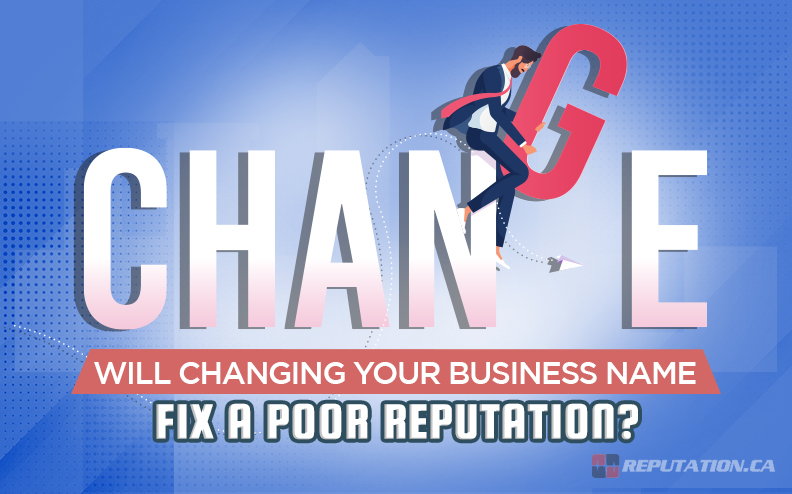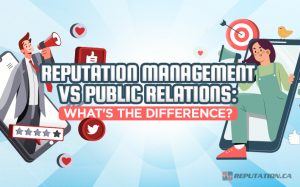The opinions of others have been a major concern since we were children, primarily due to the social cliques we formed with our peers. One of the best examples is high school, in which we were prone to altering our personalities to fit in with the clique we desired to be a part of. While we are told to shed this behavior (rightfully so), there is some validity to the concept of tailoring our public image to those around us.
Modern society has become a macrocosm of how outside perception can affect our chances of success. In the real world, popularity determines whether or not businesses can attract new customers or influencers can find more followers. Combined with the rise of social media, the monetization of our reputations has never been so effective. Unfortunately, not everyone can maintain their reputation and might make a mistake that damages their public image.
Another impulse from our youth is the desire to change identities and run away from shame if at all possible. While this is usually a dramatic response or something that only occurs when the situation is dire, there is a real-world counterpart. Some businesses have begun contemplating changing their names to escape their sullied reputations and start fresh.
The idea of beginning again by changing your brand from the ground up might seem like an inspired idea, but there is more to it. While the impulse to start over might seem like a good idea, you should consider whether it will be effective first.
What Does a Name Change Involve?
Changing your business’s name is not a simple procedure. Unlike changing a username online, there is no text bar where you type the new name and have it override the original. In Canada and the United States of America, there is an overarching system that handles the different brands. Furthermore, different regions of the country have different procedures since state law factors into most businesses more than federal.
Regardless, you will have to contact your local government to begin changing your company name. Additionally, many of the copyrights associated with your previous name might need an update to remain compatible with the new name. In America, the first step is checking for available company names to ensure you do not try to use someone else’s brand. You can also coordinate with your local Secretary of State to identify a name that conforms to state law.

The next major step is getting approval from any shareholders associated with the business since they have a right to the company’s identity. If the shareholders approve the change and the new name you have selected, the process can continue. Unfortunately, this sums up the easiest part of the procedure since the next steps require government intervention. There are 2 government entities you must inform of your decision to change the company name:
- The Secretary of State: Each American state has a Secretary of State who oversees political conduct within a state. You must file articles of amendment with your state’s secretary to notify them that your business is changing names. Once you pay the appropriate fee, the Secretary of State reviews the articles and either approves or denies the request.
- The Internal Revenue Service (IRS): The IRS oversees finances and taxes on a federal level, and businesses are held to a specific standard. Corporate taxes are filed under the company name rather than the founder or CEO. As a result, changing the company name requires you to inform the IRS to ensure the business’s new name is reflected in future tax documents. Depending on the type of entity your business is (i.e., a corporation), the IRS will require you to fill out a different form.
Once you have informed the appropriate agencies (and determine whether your business needs a new employer identification number), you must update your licenses and permits. Every business is required to have a business license and any permits pertaining to the industry and tools they use. These licenses and permits are issued in the company’s name and must be re-issued if the company’s name changes. Most counties allow businesses to update their existing licenses and permits, but some force businesses to apply for brand-new ones.
Rename vs. Rebrand
Renaming a company is often identified as a rebrand, which might seem appropriate since the new name changes a fundamental aspect of the business. That said, a significant difference exists between renaming and rebranding a company. The most obvious detail is that renaming a company is limited to changing the company’s legal name. A business’s name is a core component of its identity and reputation.
When a business gets large enough, its name is recognized nationwide, even worldwide in some cases. This means changing the company’s name could easily redefine it in the eyes of previous customers and partners. Despite that, renaming the company is not the same as rebranding it since only the name is changed, and the rest of the company’s characteristics (presumably) remain the same.

A full rebranding involves changing the company’s package and does not necessarily require a name change. Changing the company logo and scope of its products or services is a rebrand, meaning you would have to change your company on a fundamental level. One of the most recent examples of a rebrand occurred in 2021 when Mark Zuckerberg relaunched the social media platform Facebook.
Zuckerberg’s company adopted several additional platforms, launched a gaming console, and began overhauling the services and products available. As a result, “Facebook” was no longer sufficient to represent his brand. That is why he rebranded it as “Meta,” which accounts for all the new services and products Zuckerberg markets. Zuckerberg’s long-term goal is to use Meta as the starting point for a 3-dimensional Internet platform, which was likely sparked when the company launched the Quest series of virtual reality gaming headsets.
Another example is when the beloved doughnut chain Dunkin’ Donuts rebranded as Dunkin’ since they offer more than just doughnuts and coffee. Conversely, an example of a rename occurred in 2018 when the restaurant chain IHOP renamed itself IHOb to bring attention to its longstanding non-pancake offerings. All these name changes and rebrands have been used to revitalize interest in companies and enhance marketing for their products, but the question is: Did this affect their reputations?
Can a Rename Fix Your Reputation?
Changing your company’s name can significantly impact your reputation and alter how your customers perceive you. Unfortunately, the change can either be good or bad, depending on the circumstances surrounding the change. Some companies experience minor hurdles that require renaming to overcome the slump. Conversely, other companies find themselves embroiled in major controversies that divide the public on whether they can be trusted.

Ultimately, no “one-size-fits-all” answer can help you decide whether renaming your company is the best decision. However, it is possible to assess the potential effects renaming your company can have. Once you understand the finer details, you can make an informed decision as to whether you should rename it. One of the biggest factors in renaming your company is identifying the platform on which you conduct business.
For example, renaming your business could have different effects if your company operates entirely online. Conversely, a retail operator might experience less change since the store’s location is static (especially if the owner is well-known in the community). These details alone can change how renaming affects your business, but there is much information to consider.
A Rename Outranks Reviews
Renaming your business when most of the commentary is online can be fairly beneficial since most of the data attached to the old name might not follow. If your company’s renaming is accompanied by a new website on which to host products and services (with a separate domain name), it is possible the reviews will not follow.

Bad reviews can destroy a company since most customers check them before purchasing anything from a new provider. If the reviews associated with your company name are predominantly negative, the odds of recovery are slim without serious changes. Renaming your company and rebranding the services and products can prevent those reviews from being associated with the new name.
For example, if your company was originally GeneroCorp and you received mostly bad reviews, virtually no one would shop with you. If you rename the company to GenTech and launch a new website, the Google reviews and the reviews attached to your old website will stay where they are. Meanwhile, new reviews could be attached to the new name. This tactic should be used only once since repeatedly changing your name and launching new websites will not fool anyone. When done successfully, your new name will outrank your old one in Google’s search results since the old one will not post new content.
A Rename Does Not Change Employee Names
As frustrating as it sounds, some people will refuse to shop with a company if one of their employees has done something controversial. A frontline employee who posts inflammatory comments on social media can be terminated or reassigned to remain out of the public eye. This can help you overcome their drama, but employees higher up the food chain draw more attention.

For example, a CEO with ties to certain political parties could drive off half your consumer base. Depending on how high up the food chain they are, renaming your company will be utterly useless to counteract that sentiment. A highly placed employee remains prominent even if the company executes a rebrand to distance itself from the original brand. In this instance, renaming would be a wasted endeavor and not worth the paperwork and legal fees.
A Rename Can Make You Look Guilty
When a controversy emerges featuring your company, changing the name and trying to start over can be an appealing idea. The sentiment is that the controversy is about the original company, whereas the new one is not the same entity. Unfortunately, changing your company’s name can worsen the situation and vindicate the outcry. Modern society has begun putting more significance on nuance and no longer subscribes to one of the core facets of the justice system.
Most countries presume innocence until guilt can be proven, but modern sentiments echo the opposite, and many assume the accused are guilty and must prove their innocence. While this sentiment might be correct on occasion, it causes people to read more into certain actions than they used to. Insofar as renaming a company is concerned, it depends on how soon after the controversy this happens.

If your company is accused of intentionally manufacturing faulty products and you change the name within a few weeks of the accusation, people will assume you are running away. Changing your company’s name is considered distancing yourself from the company’s original identity and might indicate guilt. Conversely, if you allow more time to pass, you can change the name while the public is preoccupied with the newest controversy and is no longer focused on you.
Take Your Reputation Back!
Renaming your company might seem like the right call, but you should never use it as a first resort. Rather, you should work to compensate for the reputational damage you suffered and launch a public relations campaign to restore goodwill. This will not always be effective, and you might need to start over anyway, but putting in the effort can help you overcome the accusations you are hiding from your past.
Furthermore, if you plan on renaming the company to start over, consider a full rebrand to create the freshest slate possible. Insofar as damage control is concerned, you might struggle since the Internet has changed the process. Fortunately, you can find help.

We at Reputation understand the importance of your public image, which is why we are dedicated to helping you manage it. We offer public relations services, social media management, review management, and assess SEO optimization to help you outrank bad press. While we cannot rename or rebrand your company, we can work to help you avoid needing to do so. There are no shortcuts when it comes to your public image, so visit our website and take your reputation back!











